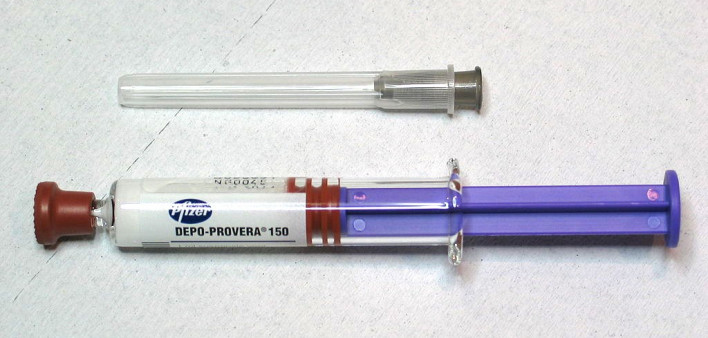Women with vaginal microbiomes dominated by the bacterial family Lactobacillus were three times more likely to acquire HIV while using Depo Provera than women using other contraceptives, according to new study results.
The data contradict World Health Organization and Centers for Disease Control and Prevention guidelines backed by the large randomized, controlled ECHO trial stating that there is no difference in HIV acquisition between women who use Depo Provera, other injectable or implantable contraceptives, intrauterine devices (IUDs) or daily contraceptive pills.
“While we cannot attribute cause-and-effect relationship with these features on HIV acquisition in the study, it does suggest that interactions between the microbiome, mucosal inflammation and hormonal contraceptives are important,” wrote Laura Noël-Romas, MS, of the University of Manitoba, and colleagues in PLoS Pathogens.
The data are based on the CAPRISA 004 vaginal microbiome study, which in 2017 found that a vaginal gel containing tenofovir disoproxil fumarate (TDF) provided less protection to women with vaginal microbiomes dominated by non–Lactobacillus family bacteria. Non–Lactobacillus-dominated vaginal microbiomes are more common in women in Africa and among African-American and Latina women in the United States.
For this substudy, researchers looked at the data on vaginal bacteria, HIV acquisition and the type of contraceptive the CAPRISA 004 participants used. Among the 685 women in the study, 66% used Depo Provera (also known as depot medroxyprogesterone acetate, or DMPA), 18% used NET-EN (norethindrone/norethisterone enanthate), 14% used oral contraceptive pills and 2.3% used nonhormonal methods. Women with Lactobacillus-dominated microbiomes were less likely to use nonhormonal contraceptives than those without (1.2% versus 4.0%).
Among women with Lactobacillus-dominated microbiomes, use of Depo Provera was associated with more than a threefold increase in the risk of acquiring HIV, compared to women with similar microbiomes who used NET-EN or oral contraceptives. The same couldn’t be said for women with non–Lactobacillus-dominated microbiomes.
What’s more, women with Lactobacillus-dominated microbiomes who used Depo Provera also had higher rates of inflammation in the vagina than women with similar microbiomes using other modes of contraception. This led researchers to suggest that the issue of microbiomes, contraceptives and HIV acquisition may not be settled.
“While the recent ECHO trial did not observe a significant difference in HIV incidence within women using DMPA, IUDs or LNG [levonorgestrel rod] implants,” wrote Noël-Romas and colleagues, “examining these mucosal interactions with HIV acquisition during the ECHO trial would be an important avenue of investigation.”
Click here to read the full study.







Comments
Comments